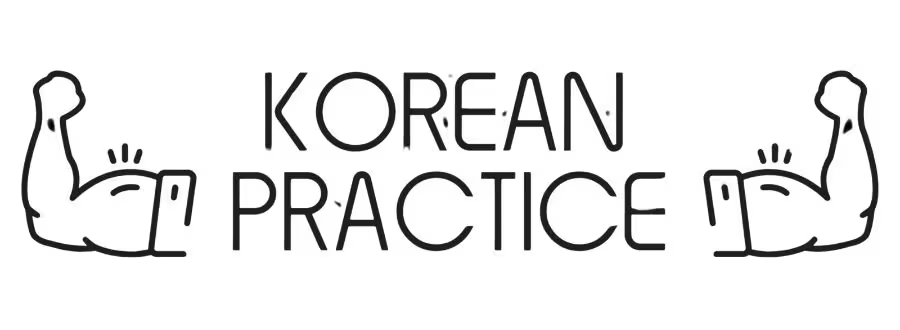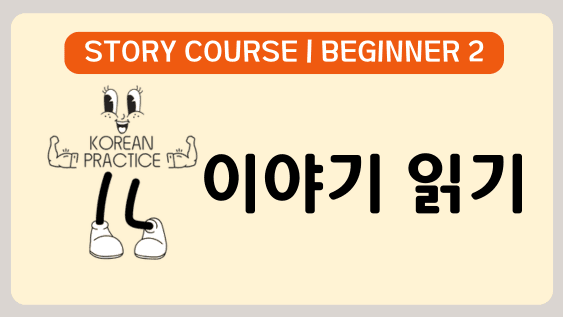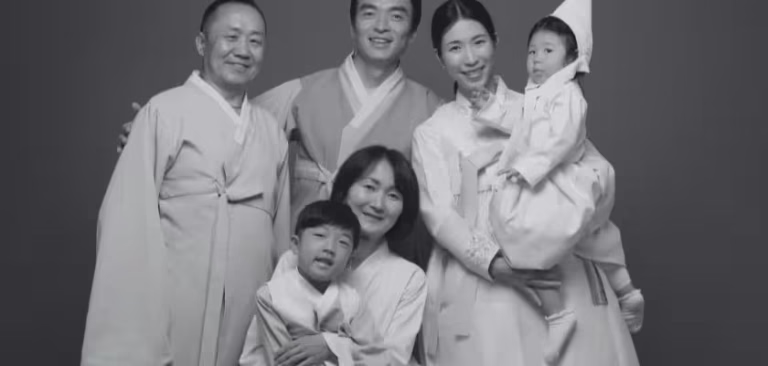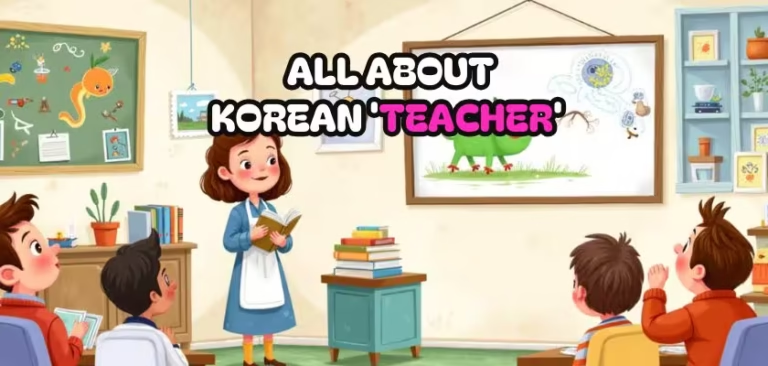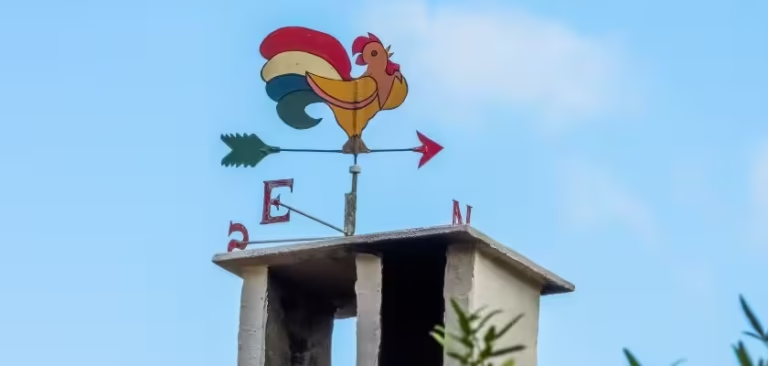In Korean, cute words like “오빠 (oppa),” “애교 (aegyo),” and “하트 (hateu)” are everywhere—especially in K-pop!

These Cute Korean Words are used by idols and fans alike to express affection, charm, and playfulness. You’ve probably heard them in songs, fan meetings, or K-dramas without even realizing what they mean.
But that’s just the beginning—there are many more adorable expressions that make Korean sound so warm and fun. Keep scrolling to discover 15 Cute Korean Words K-pop fans use all the time, what they mean, and how you can use them too!
Follow These Steps
Step 1: Listen & Shadow
Follow the audio and speak along with the highlighted text.
Step 2: Check & Learn
Use the breakdowns to understand grammar, vocab, and meaning.
Step 3: Review Visually
Watch the reading practice video to reinforce the story.
Go Deeper
Get the full story and extra practice in the paid course.
STEP 1
Click the play button to try shadowing below.
Tip: For the best, distraction-free experience, switch to fullscreen mode while shadowing.
Table of Contents
STEP 2
Cute Korean Words and Expressions
Aegyo (애교) – Acting cute or adorable
Aegyo is a popular concept in Korean culture, which refers to acting cute or adorable. It is a way of expressing affection or admiration towards someone, and is often used by women to charm their boyfriends or husbands.
Aegyo is also closely related to cute Korean words and expressions, which play a significant role in this aspect of Korean culture. Some examples of aegyo expressions that incorporate cute Korean words are:
Example for cute Korean words for boyfriend
Original Korean Sentence
오빠, 사랑해!
Pronunciation Guide
오빠 (o-ppa), 사랑해 (sa-rang-hae)!
Meaning and Context
오빠 (brother, honey), 사랑하 (to love) 해 (I’m telling you casually)!
English Translation
Honey, I love you!
Literal Translation
Oppa, (I) love (you)!
Example for Korean cute words for girl
Original Korean Sentence
아이구, 너무 귀엽다!
Pronunciation Guide
아이구 (a-i-goo), 너무 (neo-mu) 귀엽다 (gwi-yeop-dda)!
Meaning and Context
아이구 (oh my), 너무 (so) 귀엽 (to be cute) 다 (are; wow)!
English Translation
Oh my, you’re so cute!
Literal Translation
Oh my, (you)’re so cute!
✍️ Related: Younger Sister in Korean: 4 Real Examples (+ 1 Mistake Everyone Makes!)
Saranghae (사랑해) – I love you
Saranghae is a common phrase used to express love in Korean. It is an essential phrase to know if you want to express your feelings to someone, and is often used between couples or close friends. Along with expressions of love, cute Korean words can also be used to express affection and endearment towards loved ones.
Example for Korean cute words for girl
Original Korean Sentence
나도 사랑해~
Pronunciation Guide
나도 (na-do) 사랑해 (sa-rang-hae)~
Meaning and Context
나 (I) 도 (too) 사랑하 (to love) 해 (I’m telling you casually)~
English Translation
I love you too~
Literal Translation
I love (you) too~
✍️ Related: From Rice Cookers to Tongs: 7 Korean Kitchen Appliances You Must Know
Oppa (오빠) and Unnie (언니) – Brother and Sister
If you’re looking for some cute Korean words, “Oppa” and “Unnie” are two terms that are commonly used to address older brothers and sisters. These words are not only endearing, but they also convey a sense of affection, closeness, and familiarity between the speakers.
Example for adorable Korean phrases
Original Korean Sentence
언니, 진짜 예뻐.
Pronunciation Guide
언니 (eon-ni), 진짜 (jin-jja) 예뻐 (ye-bbeo).
Meaning and Context
언니 (sister), 진짜 (really) 예쁘 (to be pretty) 어 (are; I’m telling you casually).
English Translation
Unnie, you’re really pretty.
Literal Translation
Unnie, (you)’re really pretty.
✍️ Related: Dog in Korean with These Fun and Easy 5 Tips
Daebak (대박) – Amazing or Fantastic
Daebak is a Korean expression used to describe something that is amazing, fantastic, or impressive. It is often used to express excitement or admiration, and is just one example of the many unique Korean words and expressions that you can incorporate into your vocabulary. So why not impress your friends with your knowledge of daebak and other cute Korean words today?
Example for cute Korean words
Original Korean Sentence
네 요리 실력 대박이야!
Pronunciation Guide
네 (ne) 요리 (yo-ri) 실력 (sil-ryeok) 대박이야 (dae-ba-gi-ya)!
Meaning and Context
네 (your) 요리 (cooking) 실력 (skills) 대박 (daebak) 이야 (are; I’m telling you casually)!
English Translation
Your cooking skills are fantastic!
✍️ Related: 먹다 Meaning in English with 10 Examples
Jeong (정) – Deep Affection or Attachment
Korean language is filled with many cute words, and “Jeong” is one of them. This word describes a deep affection or attachment towards someone or something and conveys a sense of warmth, fondness, and care. In Korean culture, this term is often used to express a close relationship between family members or close friends, and it’s a great example of the cute Korean words you might come across.
Example for adorable Korean phrases
Original Korean Sentence
나는 할아버지와 할머니에게 많은 정을 느낀다.
Pronunciation Guide
나는 (na-neun) 하라버지와 (ha-ra-beo-ji-wa) 할머니에게 (hal-meo-ni-e-ge) 마는 (ma-neun) 정을 (jeong-eul) 느낀다 (neu-ggin-da).
Meaning and Context
나 (I) 는 (my topic is myself) 할아버지 (grandfather) 와 (and) 할머니 (grandmother) 에게 (to/for) 많은 (a lot of) 정 (affection) 을 (my object is affection) 느끼 (to feel) ㄴ다 (I’m narrating).
English Translation
I have a deep affection for my grandparents.
Literal Translation
I feel a lot of jeong for my grandfather and grandmother.
Gwiyeowo (귀여워) – Cute or Lovely
If you’re looking for cute Korean words, “Gwiyeowo” is a delightful expression that means cute or lovely in Korean. This term is often used to describe something or someone that is charming, adorable, or delightful. Whether you’re talking about a cute animal, a beautiful scenery, or even a person, “Gwiyeowo” is a perfect word to use to convey your affection towards them.
Example for cute Korean words
Original Korean Sentence
이 작은 강아지가 정말 귀여워요.
Pronunciation Guide
이 (i) 자근 (ja-geun) 강아지가 (gang-a-ji-ga) 정말 (jeong-mal) 귀여워요 (gwi-yeo-wo-yo).
Meaning and Context
이 (this) 작은 (little) 강아지 (puppy) 가 (my subject is this little puppy) 정말 (really) 귀엽 (to be cute) 어요 (is; I’m telling you polite and friendly).
English Translation
This little puppy is really cute.
Banjjak Banjjak (반짝반짝) – Sparkling or Shiny
Banjjak Banjjak is a cute Korean words expression used to describe something that is sparkling or shiny. It is often used to describe things like jewelry, stars, or glitter.
Example for cute Korean words
Original Korean Sentence
밤하늘에 반짝반짝 빛나는 별들이 너무 아름답다.
Pronunciation Guide
밤하느레 (bam-ha-neu-re) 반짝반짝 (ban-jjak-ban-jjak) 빈나는 (bin-na-neun) 별드리 (byeol-deu-ri) 너무 (neo-mu) 아름답따 (a-reum-dap-dda).
Meaning and Context
밤 (night) 하늘 (sky) 에 (in) 반짝반짝 (twinkle twinkle) 빛나는 (sparkling) 별 (star) 들 (s) 이 (my subject is stars) 너무 (so) 아름답 (to be beautiful) 다 (are; I’m narrating).
English Translation
The stars sparkling in the night sky are so beautiful.
Literal Translation
Stars sparkling twinkle twinkle in night sky are so beautiful.
✍️ Related: Body Parts in Korean: A Comprehensive Guide
Jagiya (자기야) – Honey or Darling
Jagiya is a Korean word used to address someone affectionately. It is often used between couples to express endearment and affection towards each other, and is just one example of the many cute Korean words and expressions that can add a playful and sweet touch to your conversations.
Example for Korean cute words for couples
Original Korean Sentence
자기야, 네가 있어서 내 삶이 행복해.
Pronunciation Guide
자기야 (ja-gi-ya), 네가 (ne-ga) 잇써서 (it-sseo-seo) 내 (nae) 살미 (sal-mi) 행보캐 (haeng-bo-kae).
Meaning and Context
자기야 (honey), 네 (you) 가 (my subject is you) 있 (to exist) 어서 (because) 내 (my) 삶 (life) 이 (my subject is my life) 행복하 (to be happy) 해 (is; I’m telling you casually).
English Translation
Honey, my life is happy because you’re in it.
Literal Translation
Honey, my life is happy because you exist.
✍️ Related: Cardinal Directions in Korean with Super Easy 18 Examples
Naekkeo (내꺼) – Mine
Naekkeo is a Korean expression used to express ownership or possession. It is often used between couples to show that they belong to each other, and is just one of the many cute Korean words and phrases that can add a touch of romance and intimacy to your conversations.
Example for Korean cute words for couples
Original Korean Sentence
너를 좋아하는 이유? 간단해. 너는 내꺼니까.
Pronunciation Guide
너를 (neo-reul) 조아하는 (jo-a-ha-neun) 이유 (i-yu)? 간딴해 (gan-ddan-hae). 너는 (neo-neun) 내꺼니까 (nae-kkeo-ni-kka).
Meaning and Context
너 (you) 를 (my object is you) 좋아하 (to like) 는 (that~) 이유 (reason)? 간단하 (to be simple) 해 (is; I’m tellilng you casually). 너 (you) 는 (my topic is you) 내꺼 (mine) 니까 (because).
English Translation
The reason I like you? It’s simple. You’re mine.
Literal Translation
Reason that (I) like you? (It)’s simple. Because you’re mine.
✍️ Related: 10 Must-Know Bed in Korean Vocabulary
Bbo Bbo (뽀뽀) – A kiss
Korean language is full of interesting expressions and unique words, including Korean terms of endearment like “jagiya” and “yeobo”. But did you know that there’s also a specific word to describe a kiss in Korean? It’s called “뽀뽀” (ppoppo), and it’s often used between couples or with children. So the next time you want to add a touch of affection to your conversations, consider using “뽀뽀” along with other Cute Korean Words and expressions.
Example for Korean cute words for couples
Original Korean Sentence
나와 뽀뽀해 줘.
Pronunciation Guide
나와 (na-wa) 뽀뽀해 (bbo-bbo-hae) 줘 (jwo).
Meaning and Context
나 (me) 와 (with) 뽀뽀 (kiss) 해 주 (give) 어 (I suggest casually).
English Translation
Give me a kiss.
Literal Translation
Give kiss with me.
✍️ Related: Nature in Korean: 19 Beautiful Korean Words You Should Know
Dongsaeng (동생) – Younger brother/sister
This is a term that refers to a younger brother or sister. The cute Korean words can also be used to refer to a younger person in a friendly or informal way.
Example for adorable Korean phrases
Original Korean Sentence
오늘은 동생이랑 영화를 보러 갈 거예요.
Pronunciation Guide
오느른 (o-neu-reun) 동생이랑 (dong-saeng-i-rang) 영화를 (yeong-hwa-reul) 보러 (bo-reo) 갈 (gal) 꺼예요 (ggeo-ye-yo).
Meaning and Context
오늘 (today) 은 (as for) 동생 (younger sibling) 이랑 (with) 영화 (movie) 를 (my object is a movie) 보 (to see) 러 (in order to) 가 (to go) ㄹ 거 (be going to) 예요 (am; I’m telling you polite and friendly).
English Translation
Today I’m going to see a movie with my younger sibling.
Literal Translation
As for today (I)’m going to see movie with younger sibling.
✍️ Related: Speak 12 Hobbies in Korean with Confidence
Jjagkkoong (짝꿍) – Partner/buddy
This is a Korean term that refers to a partner or buddy. It can be used in a romantic or platonic context. Jjagkkoong, which is a popular term among Korean couples and friends, is one of the many cute Korean words that express endearment and affection.
Example for cute Korean words for friends
Original Korean Sentence
나의 짝꿍은 내 인생에서 가장 소중한 사람이에요.
Pronunciation Guide
나에 (na-e) 짝꿍은 (jjag-kkoong-eun) 내 (nae) 인생에서 (in-saeng-e-seo) 가장 (ga-jang) 소중한 (so-jung-han) 사람이에요 (sa-ra-mi-ye-yo).
Meaning and Context
나의 (my) 짝꿍 (buddy) 은 (my topic is my buddy) 내 (my) 인생 (life) 에서 (in) 가장 (the most) 소중한 (precious) 사람 (person) 이에요 (is; I’m telling you polite and friendly).
English Translation
My buddy is the most precious person in my life.
Ppalli ppalli (빨리 빨리) – Quickly/hurry up
Cute Korean words are not just limited to expressing love or endearment, but they can also be used to add humor and playfulness to daily conversations.
For instance, the expression “ppalli ppalli” meaning “quickly” in English, is commonly used in a playful or joking manner to encourage someone to hurry up. So the next time you’re in a rush, try using “ppalli ppalli” to add a touch of Korean humor to your conversations.
Example for cute Korean words
Original Korean Sentence
시간이 없어서 빨리 빨리 메일을 보냈어요.
Pronunciation Guide
시가니 (si-ga-ni) 업써서 (eop-sseo-seo) 빨리 (ppal-li) 빨리 (ppal-li) 메이를 (me-i-reul) 보냇써요 (bo-naet-sseo-yo).
Meaning and Context
시간 (time) 이 (my subject is time) 없 (to not have) 어서 (so) 빨리 빨리 (quickly) 메일 (email) 을 (my object is email) 보내 (to send) ㅆ (past tense) 어요 (I’m telling you polite and friendly).
English Translation
I didn’t have much time, so I quickly sent an email.
Literal Translation
(I) don’t have time, so I quickly sent email.
✍️ Related: Teacher in Korean: The 5 Correct Ways to Address Teachers (Avoid These Common Mistakes!)
Yeobo (여보) – Darling/honey (used between married couples)
“Yeobo” is a Korean term of endearment that is used exclusively between married couples. This cute Korean word is similar to the English terms “darling” or “honey” and is a way for spouses to express their love and affection towards each other. “Yeobo” is just one example of the many cute Korean words that exist and are used to convey a sense of warmth, intimacy, and closeness in relationships.
Example for cute Korean words for couples
Original Korean Sentence
여보, 오늘은 뭐 먹고 싶어요?
Pronunciation Guide
여보 (yeo-bo), 오느른 (o-neu-reun) 뭐 (mwo) 먹고 (meok-ggo) 시퍼요 (si-peo-yo)?
Meaning and Context
여보 (darling), 오늘 (today) 은 (my topic is today) 뭐 (what) 먹 (to eat) 고 싶 (want to) 어요 (I’m asking you polite and friendly)?
English Translation
Darling, what do you want to eat today?
Literal Translation
Darling, what (do you) want to eat today?
✍️ Related: Konglish: The Fun Mix of Korean and English
STEP 3
Watch this short story video to see Konglish in action
From My Original Story Style Breakdown™ — A New Way to Truly Understand Korean
This is just one sentence from a complete learning system you won’t find anywhere else — designed to help you understand Korean naturally, without getting lost in grammar rules. You can choose between Quick Learning for a fast overview, or Deep Learning for a step-by-step breakdown.
When you can truly understand Korean sentences this way, speaking becomes much easier.
🚀 Quick Learning
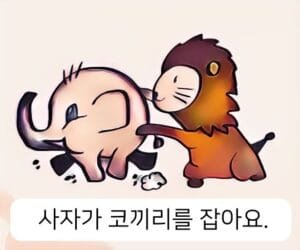
Original Korean Sentence
사자가 코끼리를 잡아요.
Pronunciation Guide
사자가 (sa-ja-ga) 코끼리를 (ko-ggi-ri-reul) 자바요 (ja-ba-yo).
English Translation
The lion catches the elephant.
Literal Translation
Lion catch elephant.
Quick Reference
사자가 (lion) 코끼리를 (elephant) 잡아요 (catch).
💡 Need more details? See “Deep Learning” below!
🔍 Deep Learning
Meaning and Context
사자 (lion)
→ The lion — the one taking action now in the story.
가 (subject marker)
→ Points out that the lion is doing the action.
코끼리 (elephant)
→ The one the action is done to.
를 (object marker)
→ Shows that the elephant is the object being caught.
잡 (to catch, grab, take)
→ The action — the lion catches or grabs the elephant.
아요 (polite ending)
→ I’m telling you this in a polite and friendly way.
Real-Life Usage
잡아요 is common when talking about catching or holding something.
Pattern Practice
1. 사자가 토끼를 잡아요.
2. 고양이가 쥐를 잡아요.
3. 아이가 공을 잡아요.
4. 강아지가 공을 잡았어요.
FAQs (What You Might Still Wonder About)
Can I use cute Korean words with strangers or acquaintances?
Most cute Korean words are meant for close relationships like friends, partners, or family. Using terms like “jagiya” (honey) or “yeobo” (darling) with strangers may come off as inappropriate or overly intimate. Stick to neutral or polite expressions unless you’re very familiar with the person.
Are these cute words used differently in K-pop or K-dramas?
Yes! K-pop idols and actors often exaggerate these expressions for entertainment or fan service. In real life, people use them more naturally and subtly depending on their personality and relationship.
What’s the difference between 귀엽다 (gwiyeopda) and 예쁘다 (yeppeuda)?
귀엽다 means “cute” and usually applies to things that are small, lovely, or endearing. 예쁘다 means “pretty” or “beautiful” and is used more for looks or style. You might say a puppy is 귀엽다, but a well-dressed friend is 예쁘다.
How do I pronounce double syllables like 반짝반짝 or 빨리빨리 naturally?
These are examples of Korean reduplication for emphasis. Say them with a light, bouncy rhythm. Listen to native speakers or K-dramas to catch the playful tone. Practicing out loud helps with fluency and flow.
Are there male and female versions of these cute words?
Some words reflect gender-specific roles or tones, like “oppa” (used by females to older males) or “unni” (used by females to older females). However, most words like “saranghae” or “gwiyeowo” are gender-neutral and can be used by anyone.
What’s a good way to memorize cute Korean words easily?
Try pairing each word with a visual or story (like the examples in this blog), use flashcards with pictures, and speak them out loud daily. You can also watch short scenes in Korean dramas and repeat the lines to match the tone and emotion.
Final words
Korean language is a beautiful and fascinating language with a rich culture and heritage. From its unique writing system to its distinctive pronunciation and intonation, the language is a joy to learn and speak.
In this article, we’ve introduced you to some of the cute Korean words that you can use in your daily conversations. These words are not only endearing, but they’re also used to express affection, admiration, and joy, adding a playful and charming touch to your interactions.
By incorporating these cute Korean words into your conversations, you can impress your Korean friends and loved ones and deepen your understanding and appreciation of this wonderful language.
